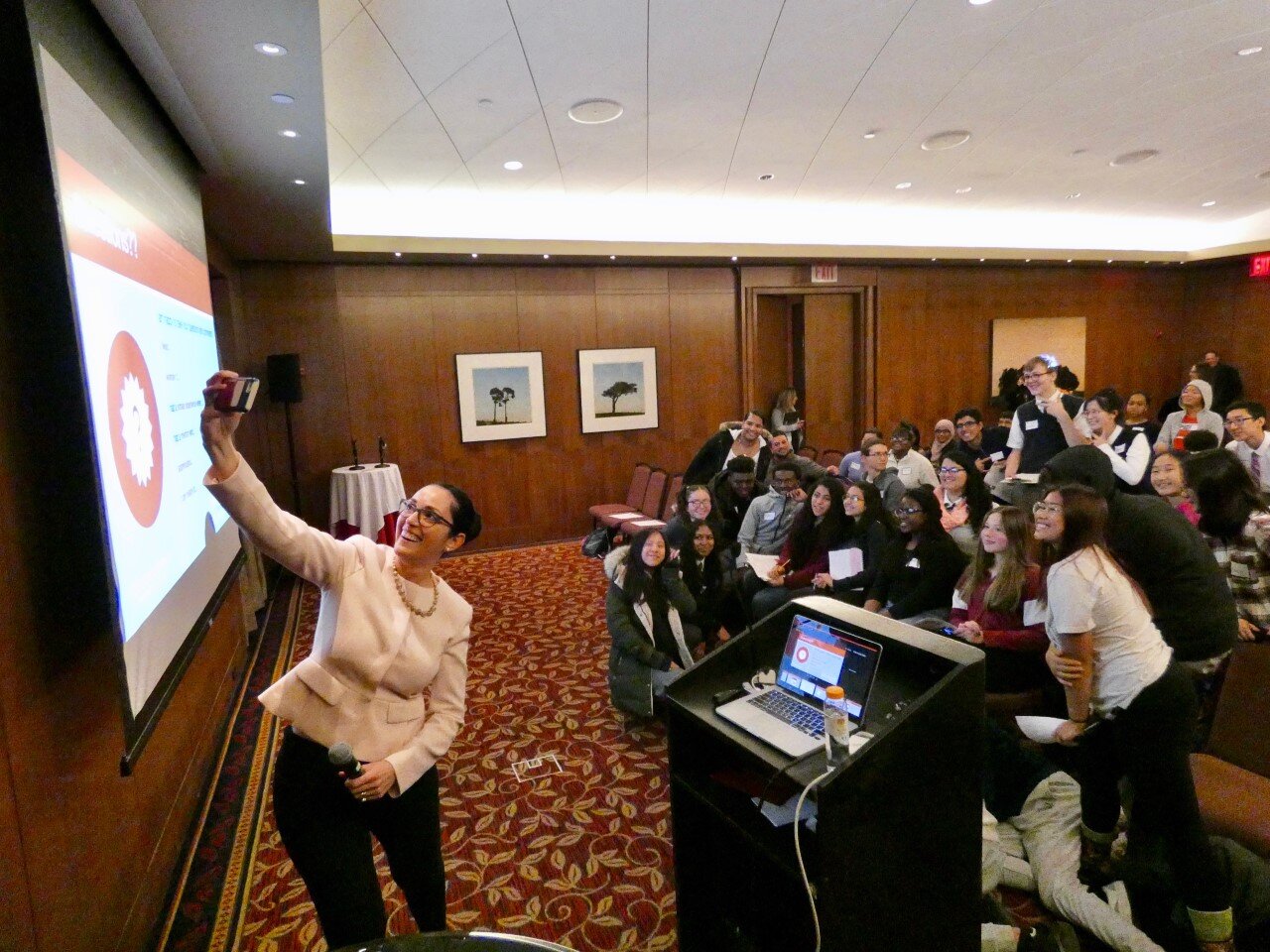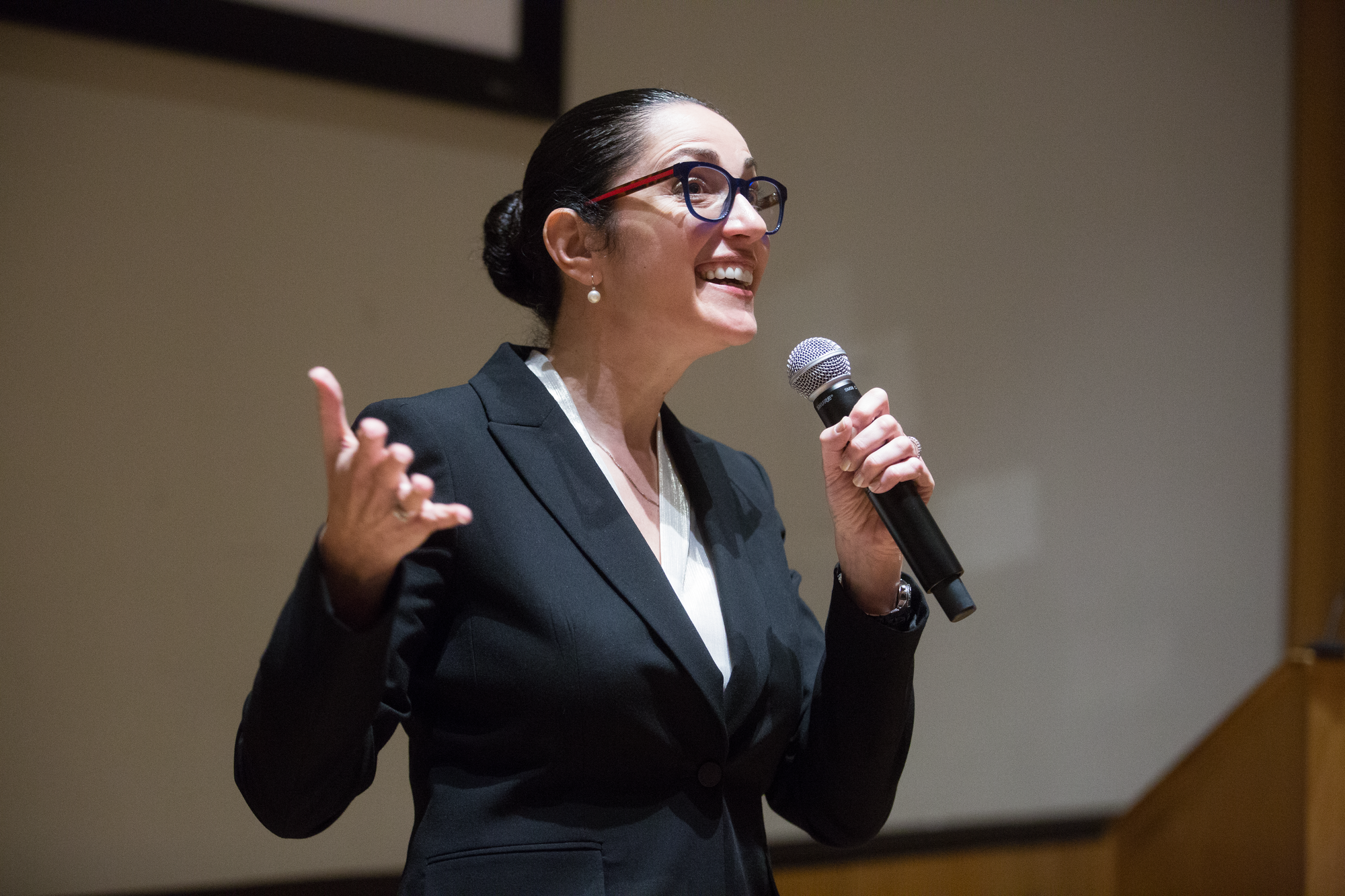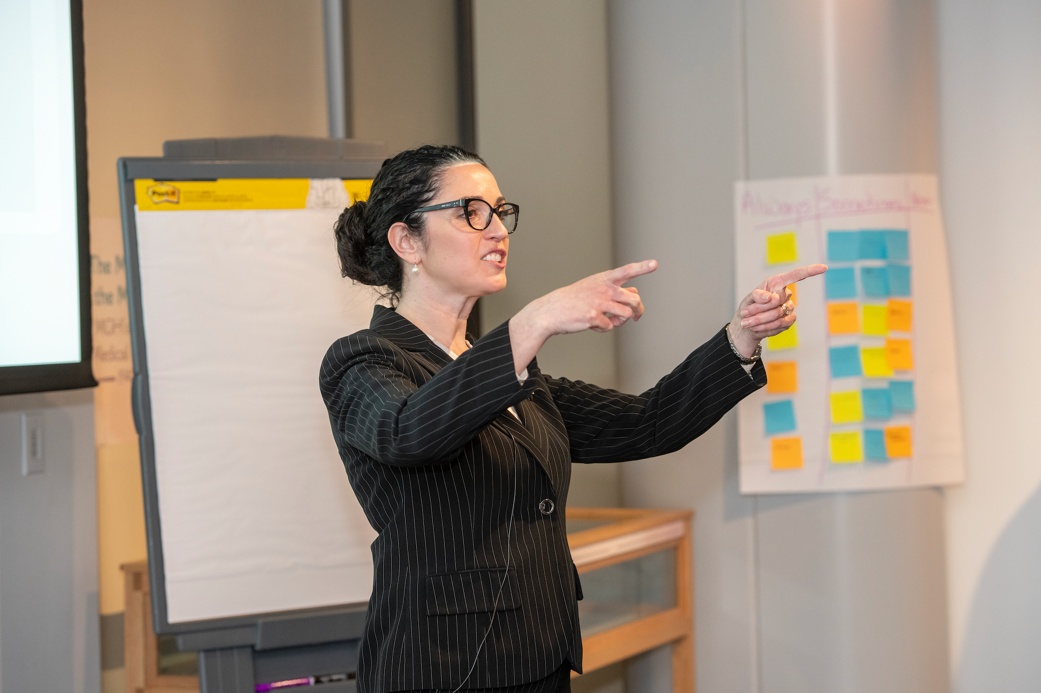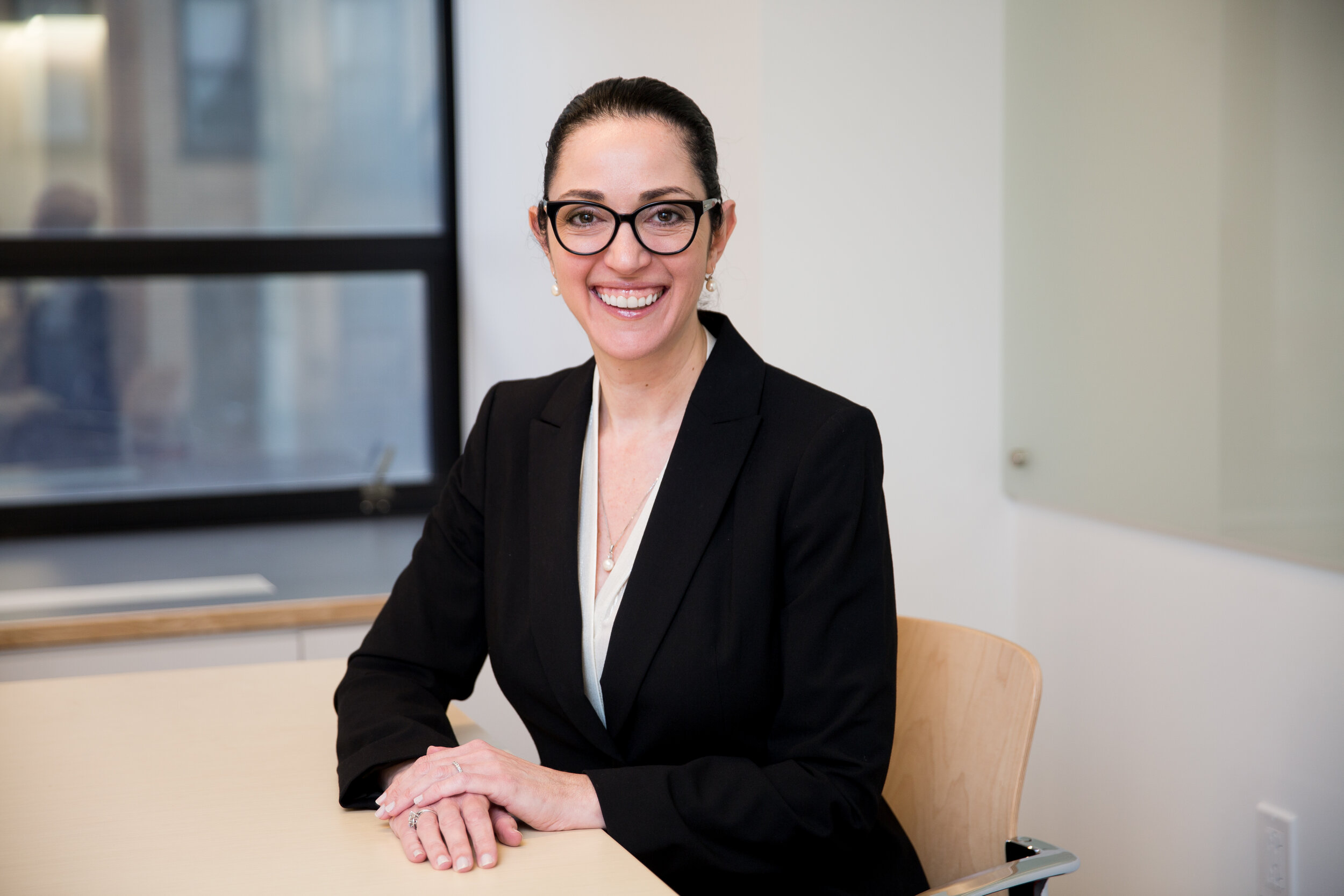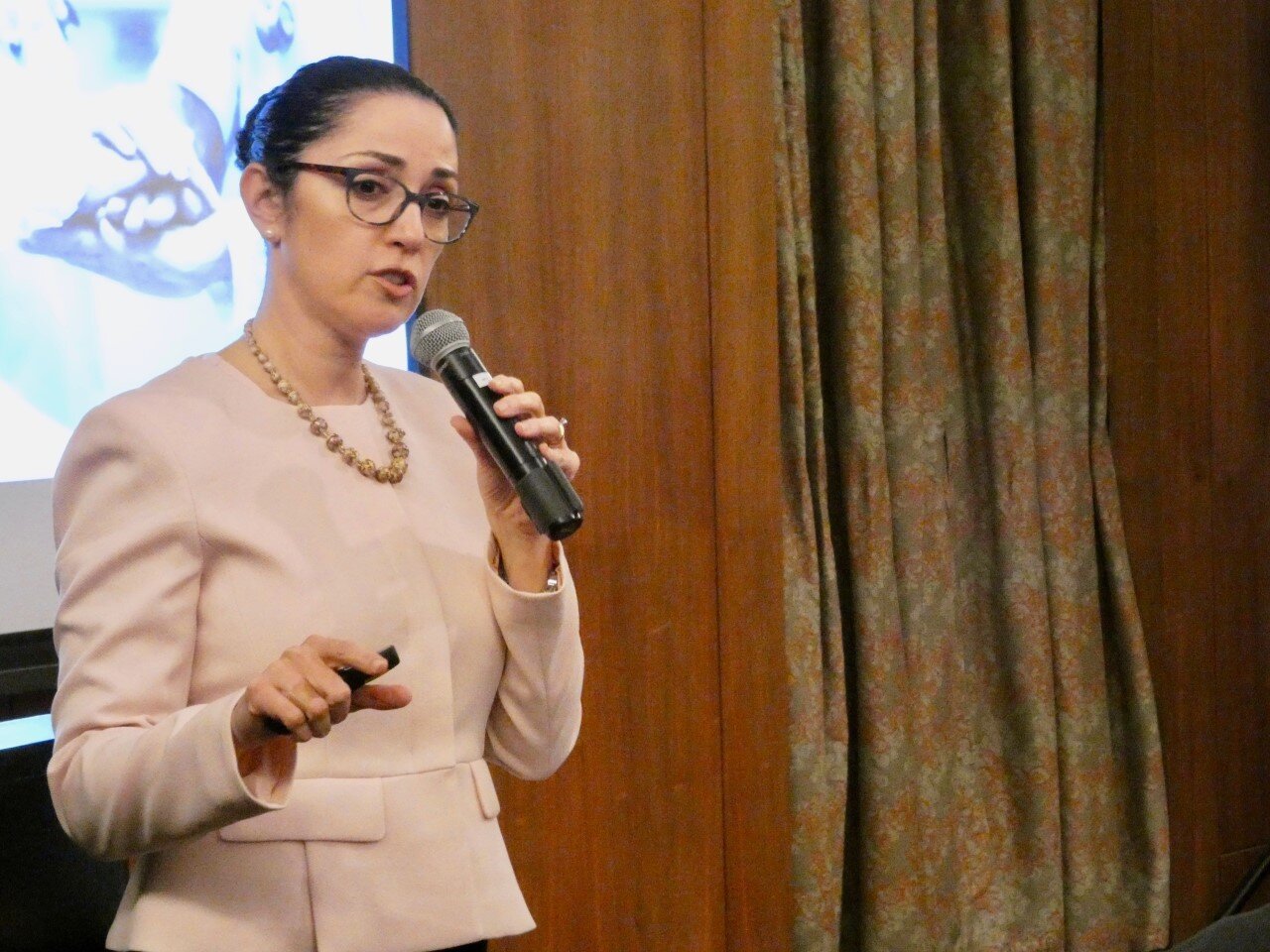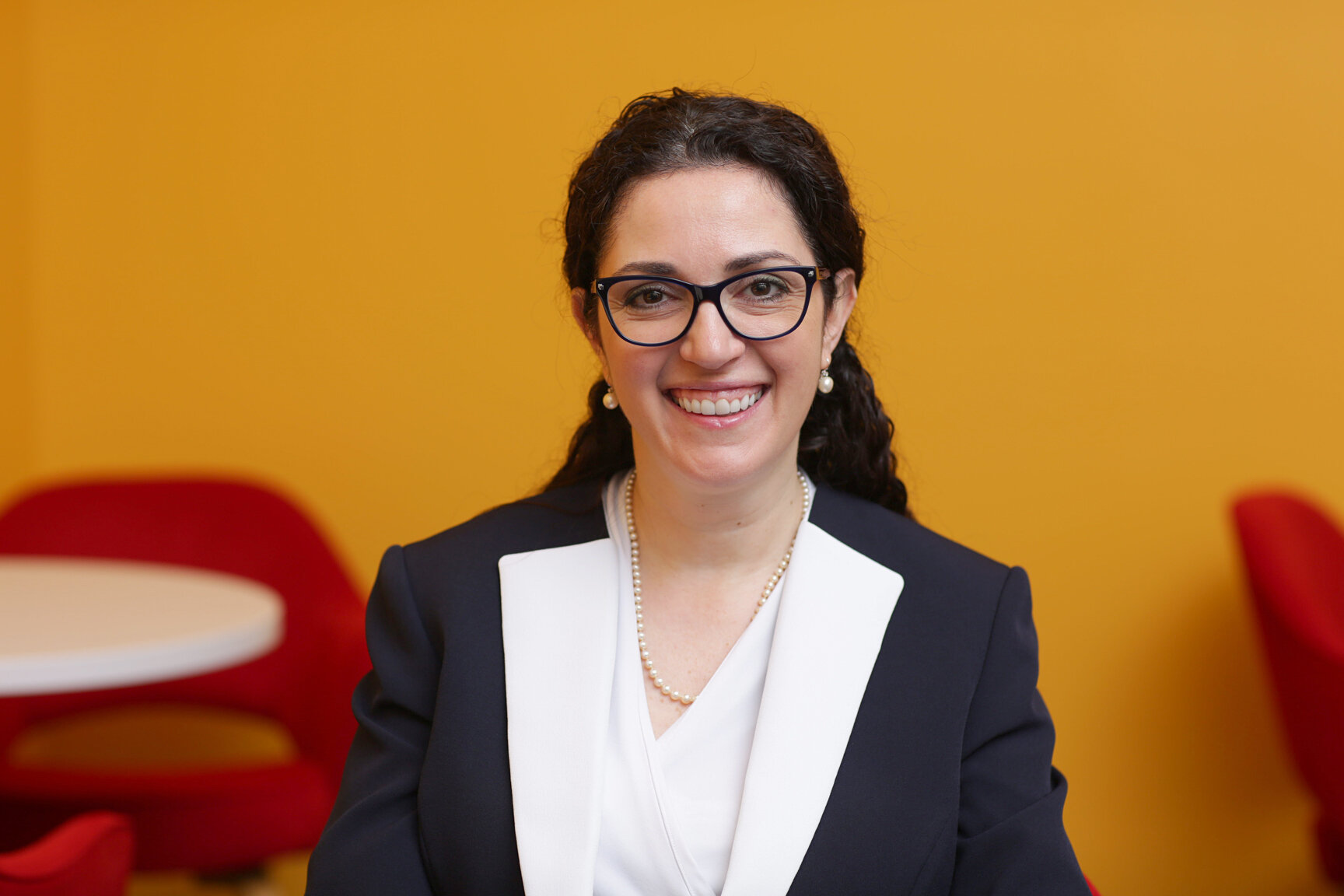Ruth Gotian, EdD, MS
RUTH GOTIAN, Ed.D., M.S.
Inaugural Assistant Dean of Mentoring
Executive Director, Mentoring Academy
Chief Learning Officer in Anesthesiology
Assistant Professor of Education in Anesthesiology
Weill Cornell Medicine
Dr. Ruth Gotian is Assistant Dean of Mentoring and Executive Director of the Mentoring Academy at Weill Cornell Medicine, Chief Learning Officer and Assistant Professor of Education in Anesthesiology. Dr. Gotian received her B.S. and M.S. in Business Management from the University at Stony Brook in New York and certificates in Executive Leadership and Managing for Execution from Cornell University. She earned her doctorate at Teachers College Columbia University where she studied Adult Learning and Leadership and focused her research on optimizing success.
Dr. Gotian publishes in both medical education and adult learning journals on topics ranging from diversity and inclusion, networking, mentoring, leadership development and optimizing success. She is the co-editor of a book on medical education and won numerous mentoring awards. She has personally mentored 302 undergraduates and 304 MD-PhD students during her career. She now oversees the success of nearly 1,800 faculty members at Weill Cornell Medicine.
Dr. Gotian credits two of her mentors for their unwavering support. Dr Bert Shapiro oversaw all MD-PhD Programs at the National Institutes of Health. When Dr. Gotian approached him about her idea to return to graduate school and to study successful physician-scientists, he fully embraced the idea and encouraged her wholeheartedly. Most importantly, he checked in with her regularly to provide support and guidance.
Her doctoral advisor, Dr. Marie Volpe, a true renaissance woman, pushed Dr. Gotian further than she ever thought possible. She helped make the impossible, possible.
Ruth Gotian, EdD
Stories by Ruth Gotian, EdD:
Mentoring During the COVID-19 Pandemic
By Ruth Gotian
nature.com — Credit: Adapted from Evgeny Karandaev/Shutterstock The coronavirus outbreak has left many of us feeling frightened, worried and overwhelmed. This is affecting people in different ways, but concerns relating to a lack of focus or productivity are not uncommon. Mentors should always provide a support system for trainees and encourage them to prioritize their health above their productivity: especially in testing times such as these.
How Perceptions of a Successful Physician-Scientist Varies with Gender and Academic Rank: Toward Defining Physician-Scientist's Success
By Ruth Gotian, Olaf S. Andersen
bmcmededuc.biomedcentral.com — AbstractBackgroundPhysician-scientists (the physician-scientist workforce) are aging, and there are too few physician-scientists in the pipeline to replace those who retire. Moreover, the pipeline is leaky because some trainees and junior physician-scientists choose other career paths. Significant attention has been directed toward patching the leaking pipeline, thereby increasing the quantity of physician-scientists.
Five ‘Power Skills’ for Becoming a Team Leader
By Sarah Groover, Ruth Gotian
nature.com — Leading a diverse team requires effective communication and organization.Credit: Getty Many scientists will oversee a team at some point in their careers, whether it is one or two undergraduates doing a summer internship, an entire research group, or a department with students, technicians and postdoctoral researchers. Scientists are trained in their discipline, but are rarely, if ever, trained in how to manage and mentor trainees.
Put Participants First in Conference Design
By Hannah Turbeville, Ruth Gotian
nature.com — Credit: Adapted from VictoriaBar/Getty Picture this: it’s 7:30 a.m., and conference participants are barely awake. Coffee in hand, they blink sleep away as they enter the room. Rows of chairs lead to a distant stage, and large monitors display the speaker’s slides. One hour of information-packed slides rolls into the next, and attention begins to wane. Students look around eagerly, wondering how they’ll manage to connect with academic luminaries in the five minutes between presentations.
Networking for Introverted Scientists
By Ruth Gotian
nature.com — Credit: Alashi/Getty Many scientists struggle with networking. If you’re one of them, don’t despair. A structured, scientific approach could be all you need. Networking starts at home. Before you go to a conference or another event, identify a core group of people, likely to be there and whom you’d like to meet to advance your career. These might be potential collaborators, employers, funding sources or future conference program organizers.
What Happens When Female Physicians Gather?
blogs.scientificamerican.com — Credit: Robert Daly Getty Images On a recent warm fall day, hundreds of female physicians from all of the New York Presbyterian Hospital (NYP) campuses in New York City convened for the first time at the New York Academy of Medicine to discuss the overt and covert benefits and challenges of being a female physician in academia. This was not a meeting that encouraged or even provided a platform for whining or preaching to the choir.
Why You Need a Support Team
By Ruth Gotian
nature.com — Credit: Adapted from Wei/iStock/Getty It’s crucial to have a ‘personal advisory board’. This is a group of dependable, reliable, clear-eyed peers — who can be nearby or scattered worldwide — from whom you can seek advice, counsel, support and perspective (and to whom you can, in turn, offer those things). Sometimes, perhaps even often, others’ points of view can help to inform your own decisions, and can prompt you to find a solution to what might otherwise have seemed an insurmountable obstacle.
Three Steps to Landing an Undergraduate Research Internship
By Ruth Gotian, Ushma S. Neill
nature.com — Credit: Adapted from Getty Research-intensive internship programs for undergraduates offered by medical and graduate schools are always in high demand. Here, based on our 25 years of collective experience running these programs in the United States, we outline the three most essential components of a successful application.
Lame Advice for Female Professionals
By Ruth Gotian, Ushma S. Neill
blogs.scientificamerican.com — Even Olympic athletes have coaches. So it stands to reason that two fairly accomplished academics who have given their fair share of public talks might attend a seminar about how women, in particular, could improve communication skills, or at least, be aware of how we are often perceived so we can adjust accordingly in an effort to ensure that a message is delivered effectively. The presenter was a communications expert experienced at training C-suite executives.
Academics Should Provide More Platforms to Learn from Each Other at Their Own Institutions (essay)
By Ruth Gotian
insidehighered.com — During my academic career, I was fortunate to have the opportunity to receive three degrees from two educational institutions; one was a state institution, the other an Ivy League. And for the last two decades, I have had the distinct privilege of working with three top-tier institutions of higher learning. I led classes and workshops, participated in meetings, and learned formally and informally from spectacular, award-winning faculty members. The best part?
Contact Ruth Gotian, EdD:
Ruth Gotian, EdD, MS
https://twitter.com/RuthGotian


